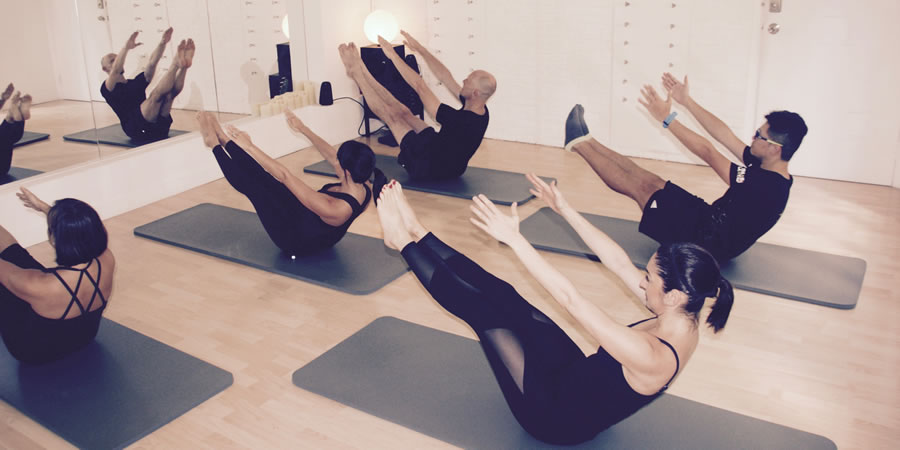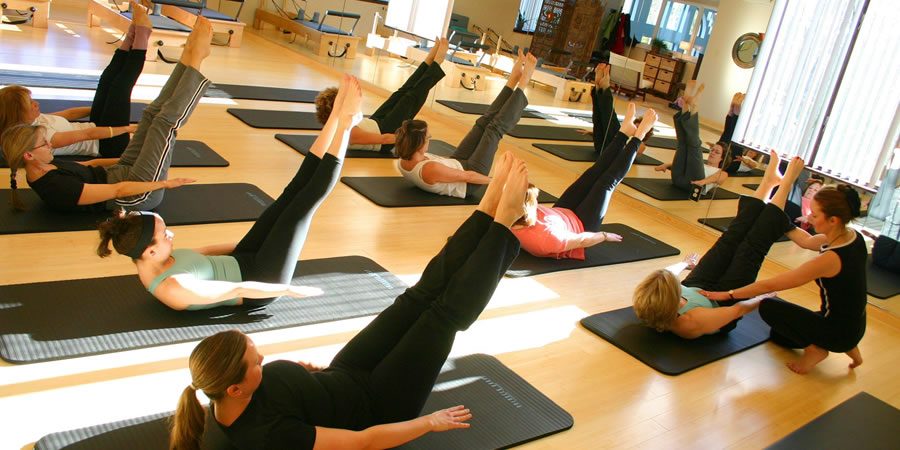From slouching over to staying up late to routinely bending their necks and heads to stare at their electronics while texting their friends…it’s no wonder teenagers get a bad rap for their posture. There is something, however, that not only can help postural imperfections, but boost their self-confidence, too.
“Because of the technological culture in which we live, teens can spend hours of their day inactive, especially during the summer,” said Colleen Dachille, owner of The Pilates Body in Peters Township. “Most often, these kids are not involved in athletics or other activities. Pilates, however, can provide a non-competitive, and hopefully, fun activity to get them moving. It also can help to alleviate conditions like text neck syndrome, which is common in both adults and teens, and improper postural habits that are developed at a young age and can last a lifetime.”
But Pilates can benefit teens more than just with posture. According to Dachille, Pilates, if performed regularly, can aid with:
- Sleep patterns
- Body awareness and self-esteem issues
- Core strength (and even develop that coveted “6-pack”)
- Athletic performance
- Lowering the risk of sports-related injuries
“Pilates can benefit any population, from the aged and physically disabled to elite athletes and everyone in between,” Dachille noted. “It is a non-impact exercise that focuses on the core and spinal musculature systems while also strengthening all major muscle groups. It also gives the opportunity for the body mechanics to be equally challenged in a balanced manner.
Most everyone favors one side of their body over another, and the way the Pilates repertoire is set up, it forces equal engagement of muscles from top to bottom, back to front and side to side.”
When teaching the teen population, it is important to have qualified instructors who can not only keep the class upbeat and fun, but who can address specific concerns of this age group. Instructors at The Pilates Body, for instance, complete a rigorous certification process where they not only learn safe and effective Pilates training, but they also learn how to spot incorrect alignment, cervical and lumbar strain and a vocabulary of verbal cues that enable them to connect with the students.
“Our teachers are so detailed in explaining the positioning of the body for an exercise that a person could potentially do it blindfolded,” Dachille said.

She explained that during a teen class, particularly, it is important that the instructor ensure the students are not straining their neck and lower back muscles, especially. “Because many of the Pilates exercises can cause strain in these areas if not performed correctly, instructors can modify for kids if needed, or give alternative options that are less risky. Many times, teens, even if they are athletes, don’t have body awareness or control of their ‘shape in space’ to do certain things. This is when an instructor can mix it up or make things a little less intense.”
If you think your teen might benefit from a Pilates class, Dachille advised to check on the validity and credentials of the Pilates studio.
“Instructors who are comprehensively certified are very knowledgeable in anatomy and body mechanics, more so than a fitness instructor who has been to a weekend training and teaches ‘Pilates-based exercises’ in a gym or recreation center environment,” she said. “That’s not a bad environment, but it helps to go where Pilates is the specialty, not a side gig. And there are several excellent Pilates studios in the Pittsburgh area!”
Source: https://pittsburgh.citymomsblog.com/raising-teenagers/pursuing-pilates-teens/








